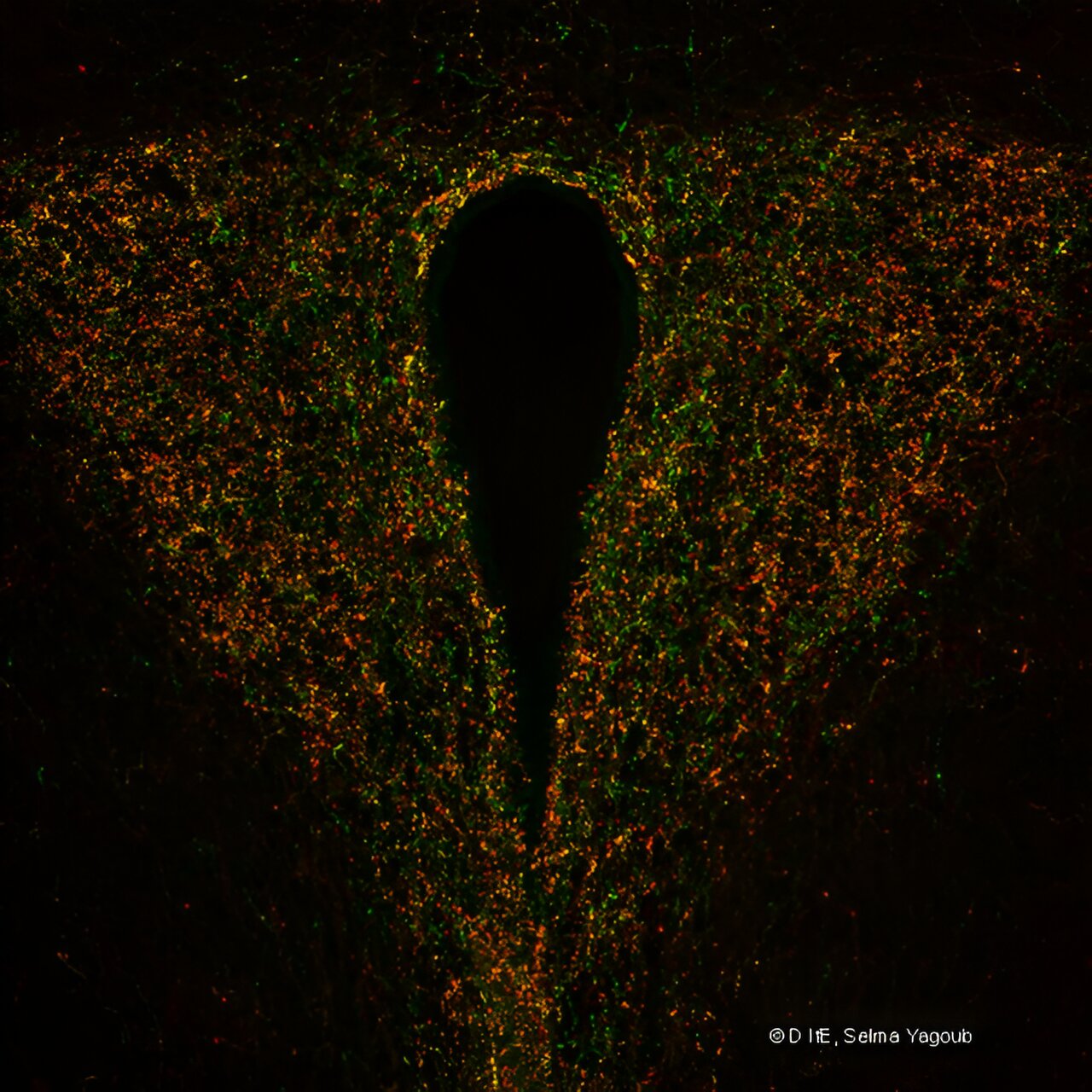
A high-fat diet can promote overweight and increase the risk of metabolic diseases, such as diabetes. In mice brains, this leads to measurable changes in the region of the hypothalamus. However, fat alone does not appear to be responsible for this, as reported by a research team from the German Institute of Human Nutrition Potsdam-Rehbruecke (DIfE) and the German Center for Diabetes Research (DZD) in the journal Scientific Reports.
The connections between neurons in the brain are constantly changing. Diet has a significant influence on this. It is now known that a high-fat diet can cause changes in the hypothalamus that disrupt energy homeostasis and can increase the risk of metabolic diseases.
Food intake is predominantly regulated within the brain by two types of neurons: AgRP (Agouti-related peptide) and POMC (proopiomelanocortin) neurons. Both are primarily found in the hypothalamus—or more precisely, in the paraventricular nucleus, a core region of the hypothalamus—and have opposite actions. POMC neurons inhibit food intake, while AgRP neurons promote it.
Previous research showed that AgRP neuron activity in the paraventricular nucleus decreases in mice that are fed a high-fat diet. This was mostly attributed to the high fat content of the diet given to the animals. However, the food of the studied mice also contained other nutrients, including sugar. It therefore cannot be said with certainty which macronutrient is responsible for the neuronal changes.
The researchers from DIfE and DZD investigated whether it is primarily fat that causes changes in the brain. They fed male and female mice a high-fat and low-sugar diet for 48 hours. It was important for the researchers to study both male and female mice, as previous studies had often only used males. As a result, it was unclear whether the two sexes respond differently to a high-fat diet.
The examination of the animal brains produced an unexpected result: An effect of the high-fat diet was not identified. The connectivity of AgRP neurons had not decreased in either female or male mice.
This suggests that it is not dietary fat (alone) that is responsible for the previously observed changes in the hypothalamus. The researchers suspect that other macronutrients, such as sugar, have more profound effects on AgRP neurons. They now want to conduct further studies to explore the role of individual macronutrients on neuroanatomical and functional changes in the brain.
More information:
Selma Yagoub et al, Acute elevated dietary fat alone is not sufficient to decrease AgRP projections in the paraventricular nucleus of the hypothalamus in mice, Scientific Reports (2024). DOI: 10.1038/s41598-024-70870-0
Provided by
Deutsches Zentrum fuer Diabetesforschung DZD
Citation:
Dietary fat alone does not cause changes in the hypothalamus, mouse study finds (2024, October 4)
retrieved 5 October 2024
from https://medicalxpress.com/news/2024-10-dietary-fat-hypothalamus-mouse.html
This document is subject to copyright. Apart from any fair dealing for the purpose of private study or research, no
part may be reproduced without the written permission. The content is provided for information purposes only.

